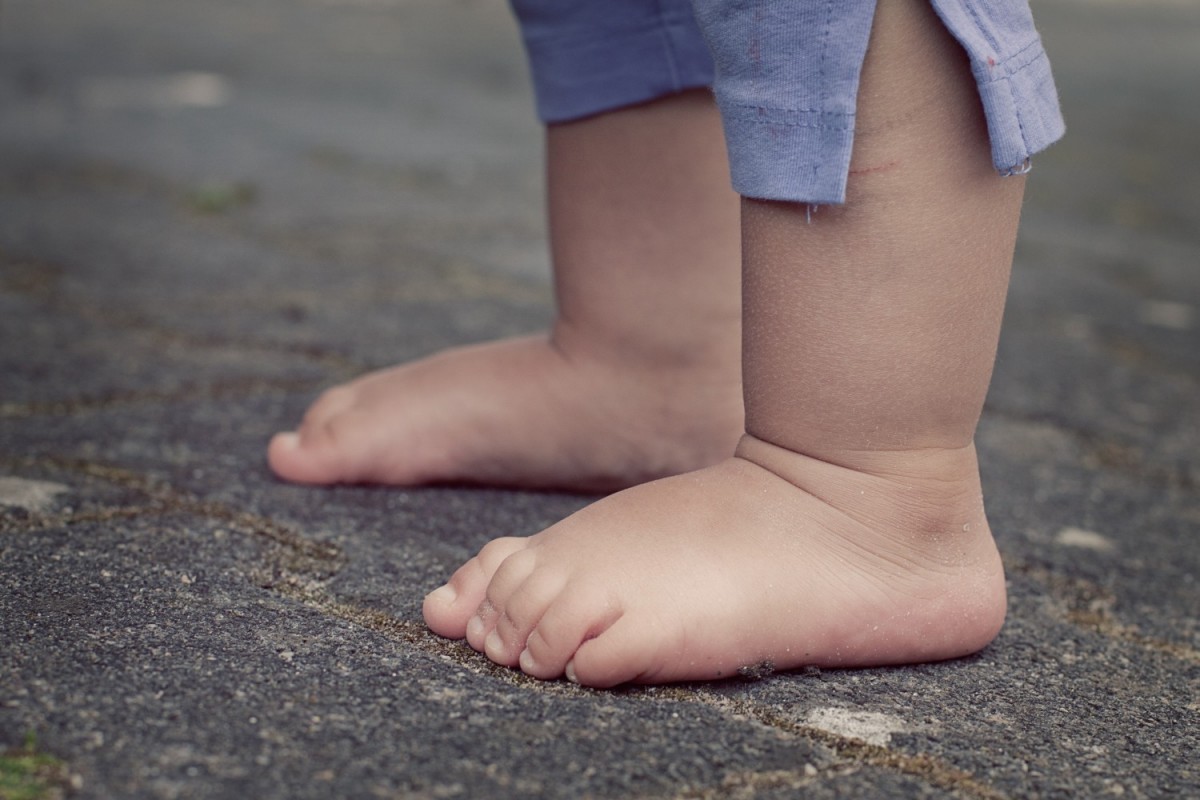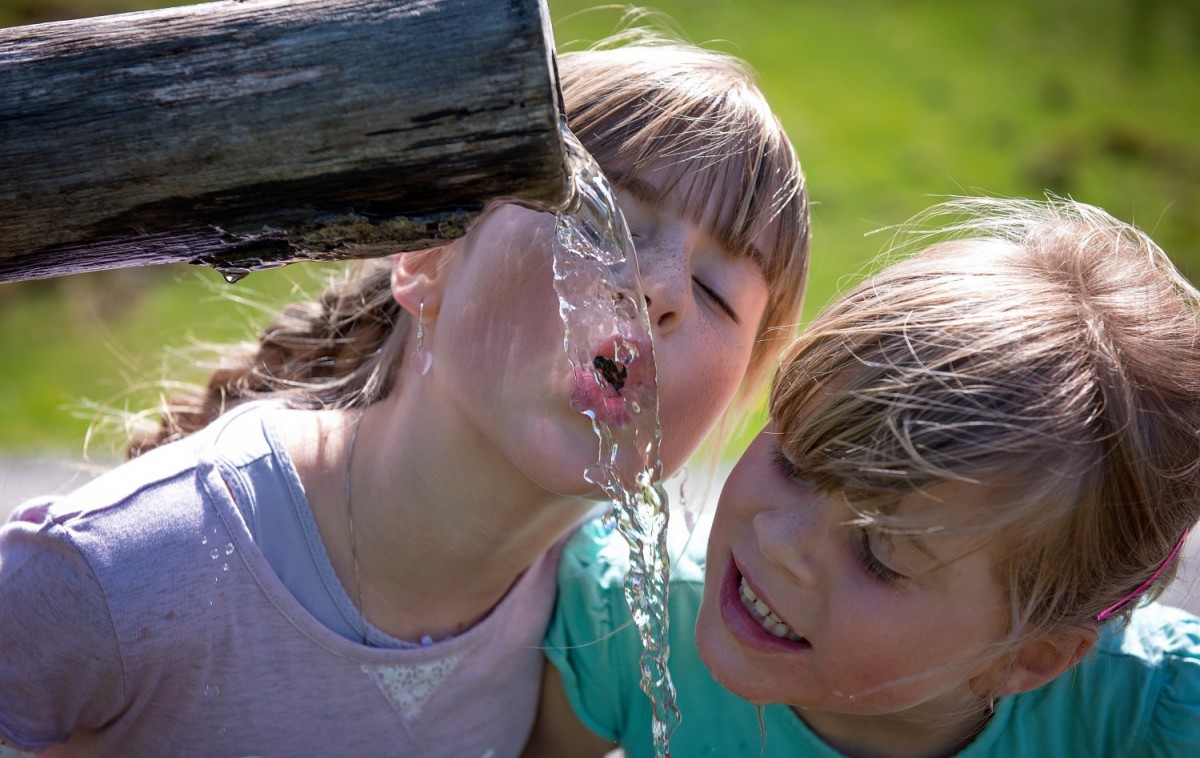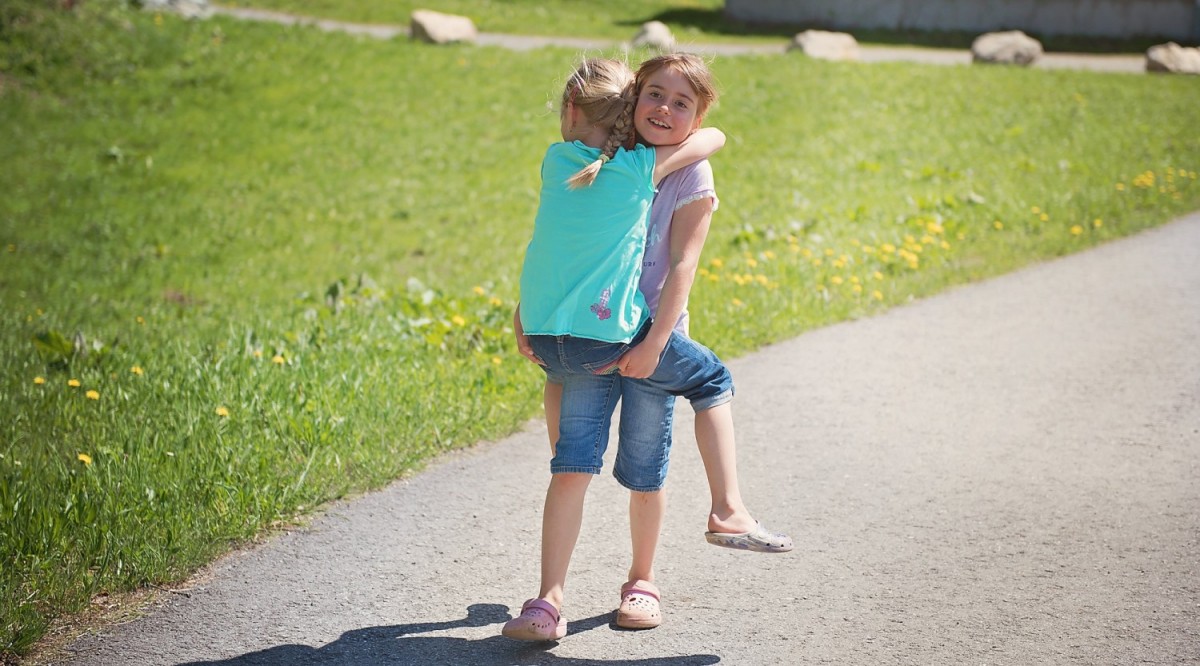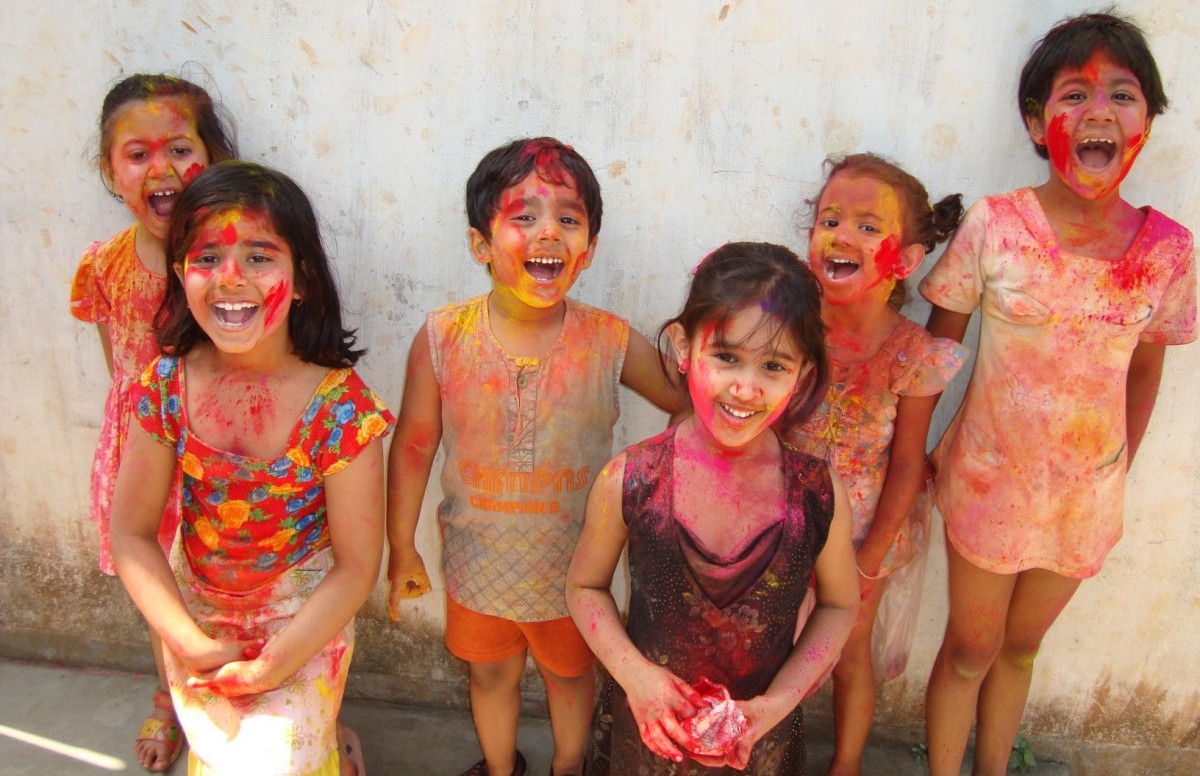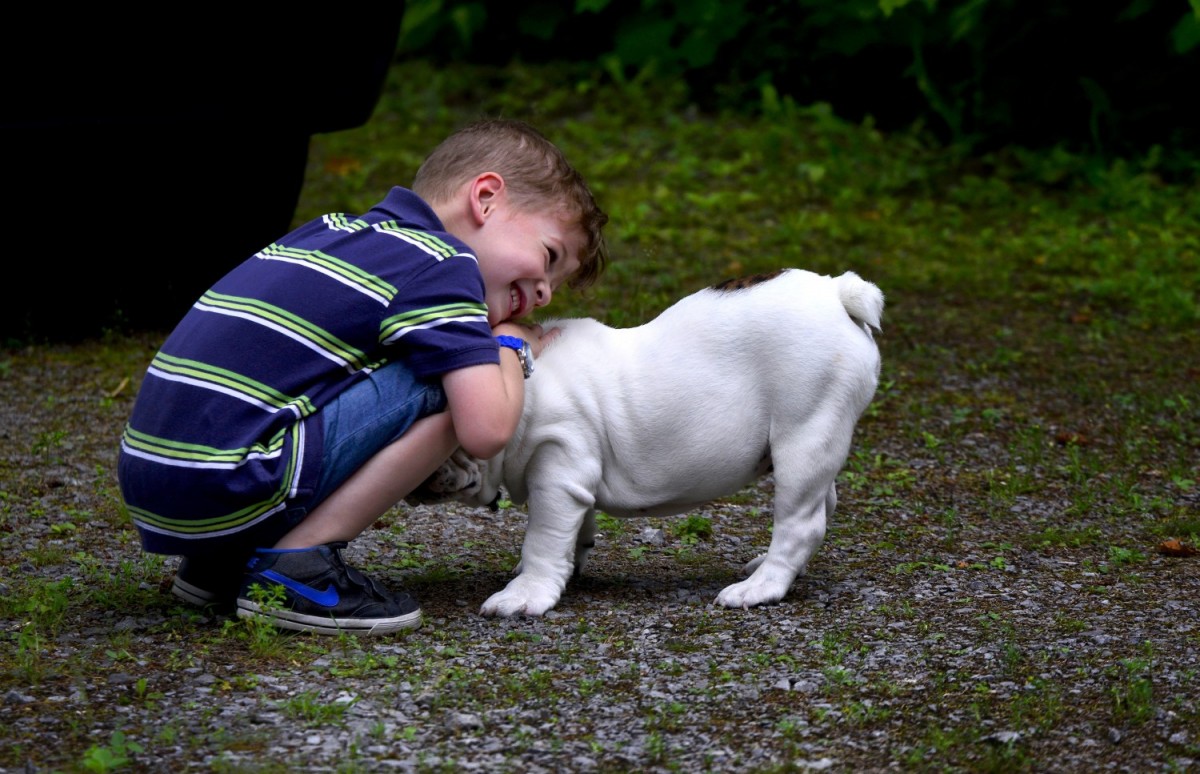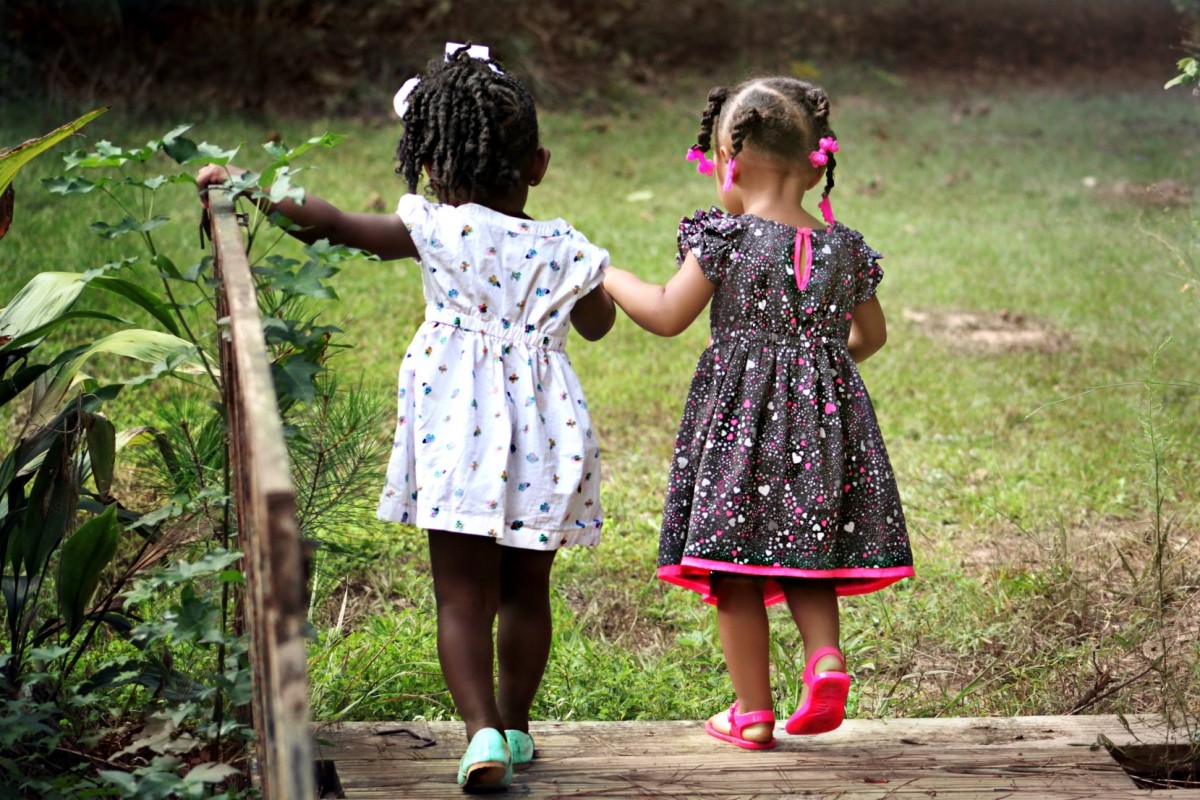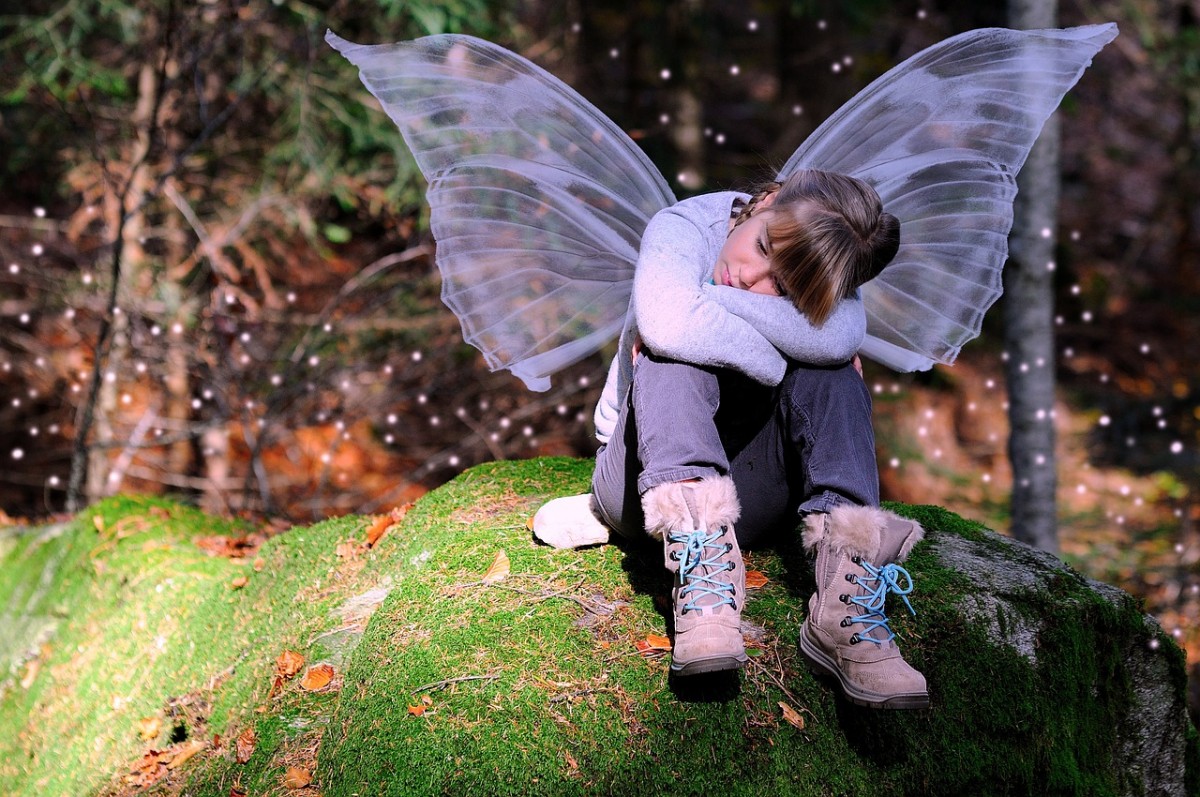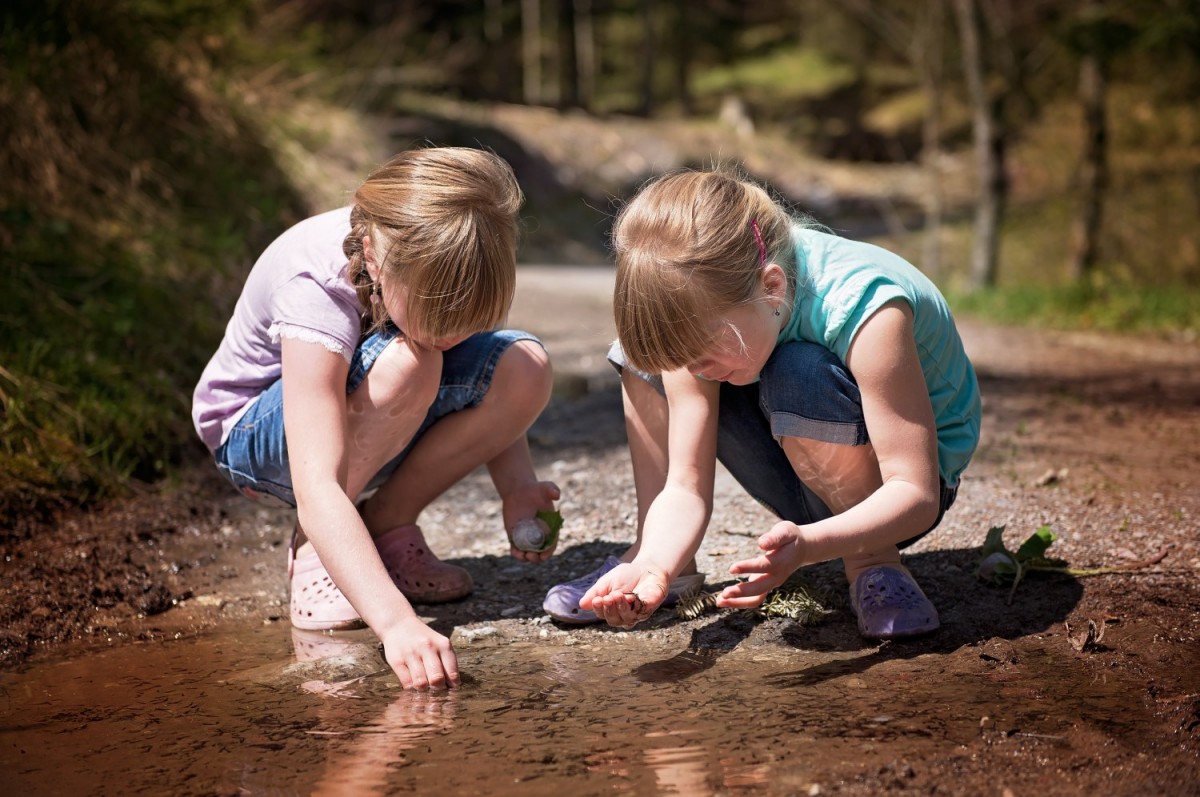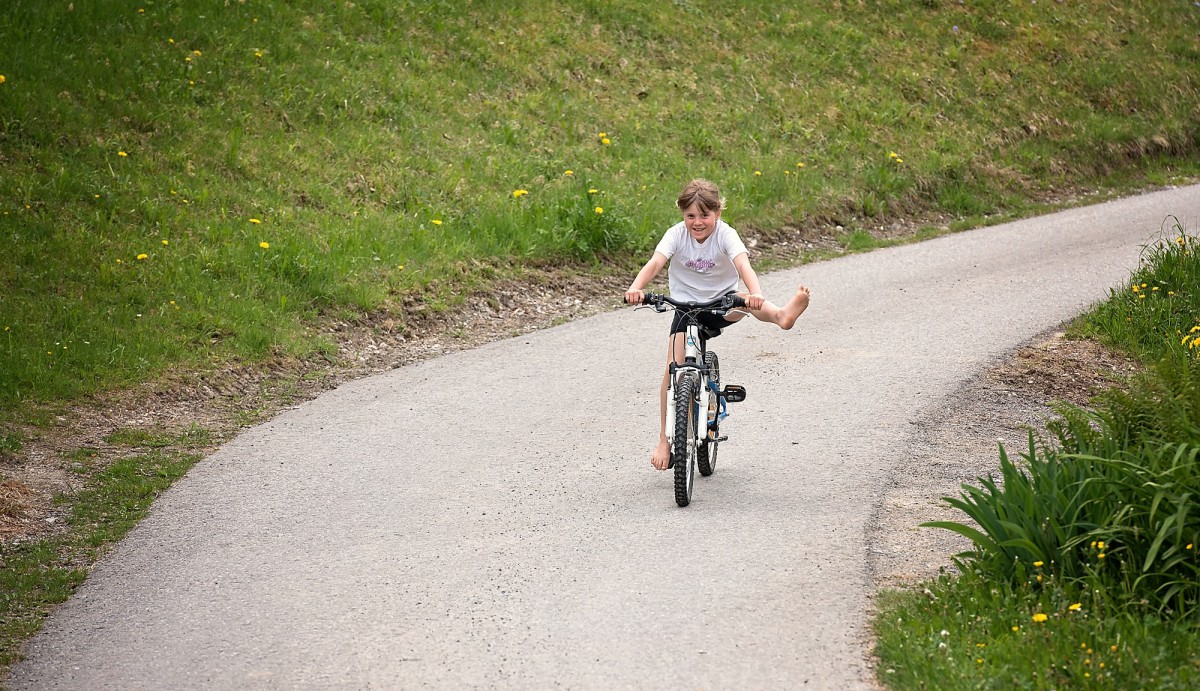Humans keep learning as long as they live. (Or at least they should…)
As you reach maturity, you search for the most renowned mentors and teachers, read books about personal development, and attend professional improvement trainings. Between all these endeavors, you forget about the simple things and the purest happiness that they give to you. Don’t you think so?
I dare you to take a few minutes to analyze your life (sounds serious, but it can be fun!), through the eyes of the child you were in the past. You can actually learn sincere happiness and 40 other things from the little ones!
On this page:
- 1 Sincere happiness
- 2 Eat as much as you need!
- 3 Dress yourself in a way that makes you feel good!
- 4 Don't wait until you're ready!
- 5 Persevere to succeed!
- 6 Ask for what you want!
- 7 Find joy in the little things!
- 8 Express your emotions!
- 9 Permanent curiosity
- 10 Self-confidence
- 11 Overcoming setbacks!
- 12 Make friends!
- 13 Let's play!
- 14 Seize the moment!
- 15 One thing has no one-time
- 16 Do not do anything in half measure!
- 17 Unconditional love
- 18 Delightful spontaneity
- 19 Friendship without labels
- 20 Show your affection!
- 21 Believe in miracles!
- 22 Braveheart
- 23 Complete forgiveness
- 24 Lifelong learning
- 25 Creativity without limits
- 26 Vivid imagination
- 27 Attention to detail!
- 28 Why?
- 29 Smile!
- 30 Keep laughing!
- 31 Cry!
- 32 Punctual refusal
- 33 Do not resist change!
- 34 Daydreaming
- 35 True joy
- 36 Trust promises!
- 37 Straight forward!
- 38 The value of something is not measured by money
- 39 Scars make you proud
- 40 Do not continue to be angry!
- 41 Sleep like a baby!
Sincere happiness
Remember the age when happiness was just a fact? It wasn’t an unrealistic goal, like it seems today. Back then you weren’t seeking happiness, you were just living it. Money and other excuses in which keep your happiness locked up did not exist. You didn’t need reasons for happiness. It simply was inside you. It is still there now – you just need to set it free!
If you want to remember how to open the happiness faucet, simply watch the children in their element!
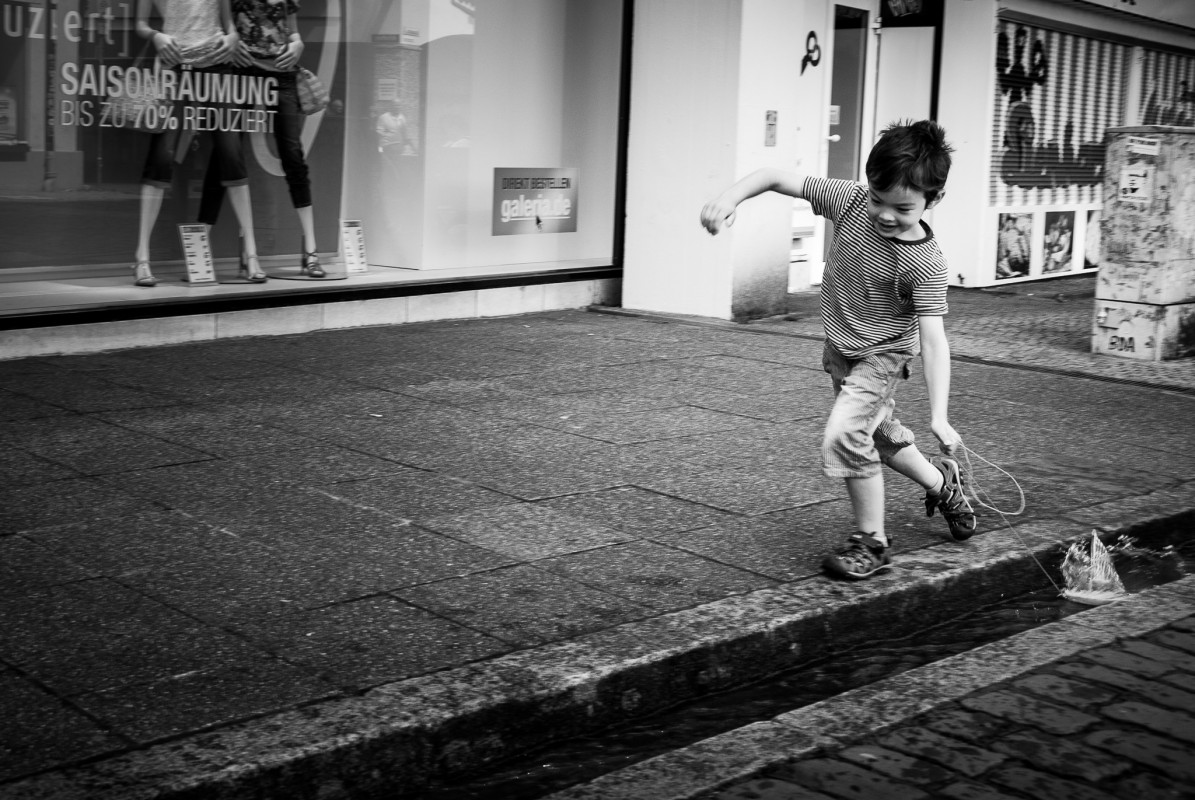
Sincere happiness (Photo: Jaime González / CC BY 2.0) Eat as much as you need!
All little children know how much they need to eat. Even breastfed babies know when they have had their fill.
Some adults, however, associate eating with stress and depression, and often exceed the food limits they should expect. This habit not only affects the silhouette, but also one’s health.

Eat as much as you need! (Photo: Christy Scherrer / CC BY-ND 2.0) Dress yourself in a way that makes you feel good!
For children, it really doesn’t matter if dotted pants are worn with a striped shirt. Comfort is more important than fashion rules.
Feeling good in your clothes is more important than you think! What’s the point of being trendy if you feel like hell?! Sure, if the latest fashion makes you happy, then very well! But if you feel uncomfortable with a new clothing cut or with a pair of sparkling new shoes, to hell with them!
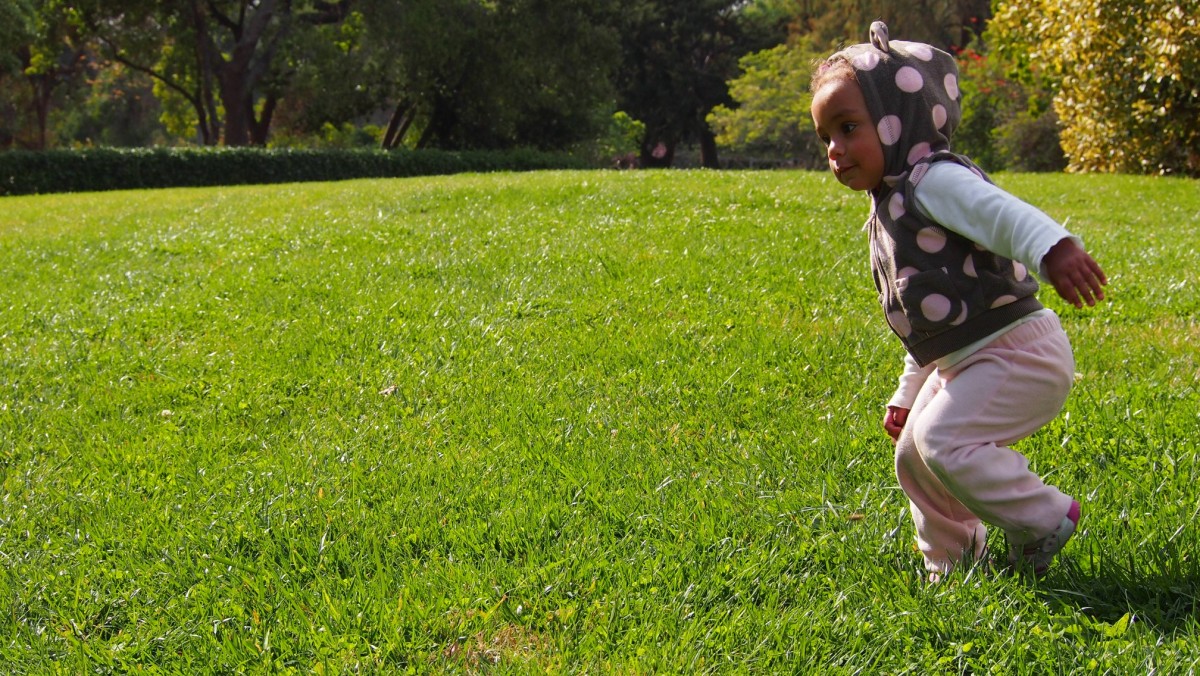
Dress yourself in a way that makes you feel good! (Photo: Ian D. Keating / CC BY 2.0) Don't wait until you're ready!
Adults tend to postpone “until the time is right”. That means never.
But when a child wants to do something, he does not postpone because he doesn’t feel ready. He’s ready all the time. Try it and see what the results are.
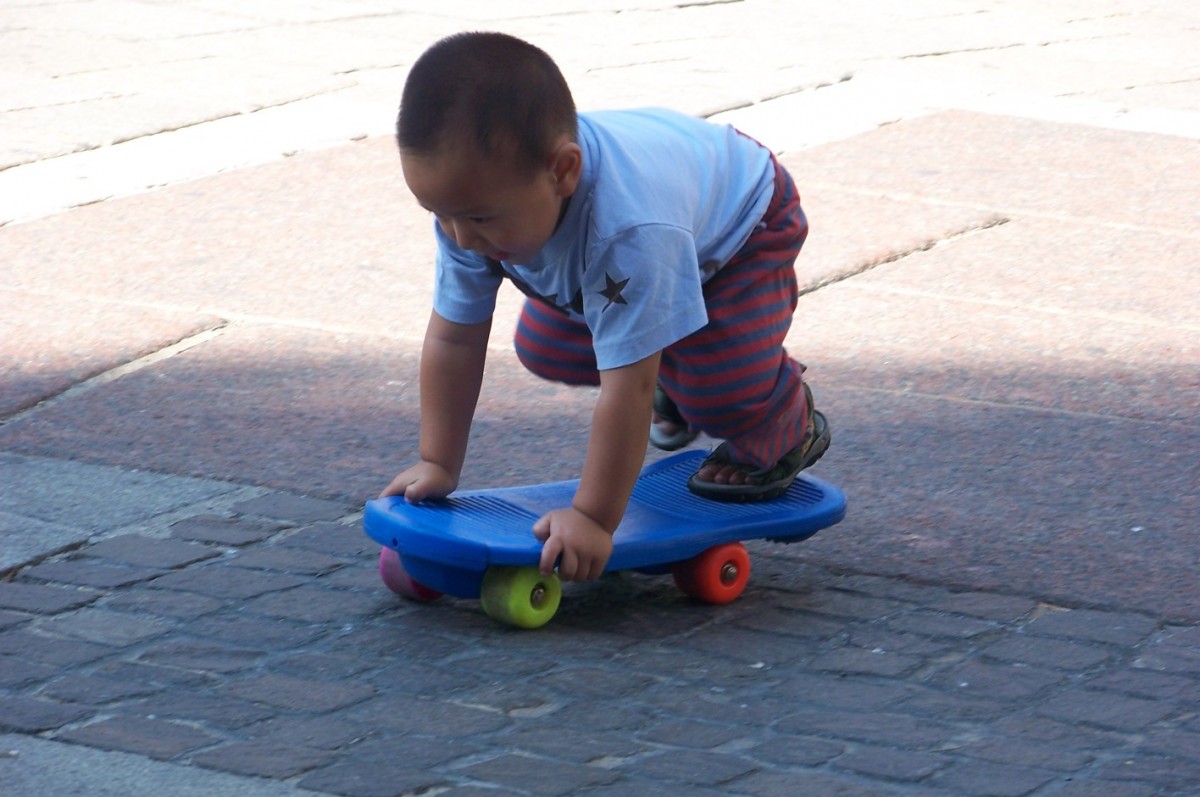
Do not wait until you’re ready! (Photo: Spyros Theodoritsis / CC BY-ND 2.0) Persevere to succeed!
Certainly you can’t remember how many times you fell when you started learning to walk. But your parents can tell you that you got up and did it all over again. Giving up was not an option.
If a child of only one year perseveres and succeeds, what’s your excuse for quitting? You really think you can’t do better?!
Ask for what you want!
Children do not hesitate to ask for what they want. They are insistent, and don’t take no for an answer that easily. Of course, they do not get everything they want, especially if they don’t ask nicely (nor could they squeeze a whole toy store in their room). But if you watch carefully, you’ll see that their demands don’t remain ineffective.
Adults tend to restrain themselves too much. They feel like it’s embarrassing even to ask. They prefer to be frustrated by the fact that no one guesses what they really want. Actually, it’s much better to ask – and you won’t mind if you get refused. Ask people, but especially ask the universe. If you haven’t heard by now, it’s the first step to success 1)”Why ‘The Secret’ & Law Of Attraction Doesn’t Work For Most & What Does” by Michael Mackintosh, article published in Owning Pink on December 29, 2012.
Find joy in the little things!
What do you think a child with no toys would do? He would put his imagination to the test. A cardboard box can become a dollhouse or garage for cars. It may be a good storage place or a good place to hide. I couldn’t make a complete list, because a child can always invent a new way to enjoy an ordinary box. Besides throwing it in the trash, I wonder what you’d do with it.
Children are able to enjoy the “nonsense”. But you know, at their age, you were the same. Essentially, things have not changed, they are as “great” as they were back then. You just have to accept them joyfully.
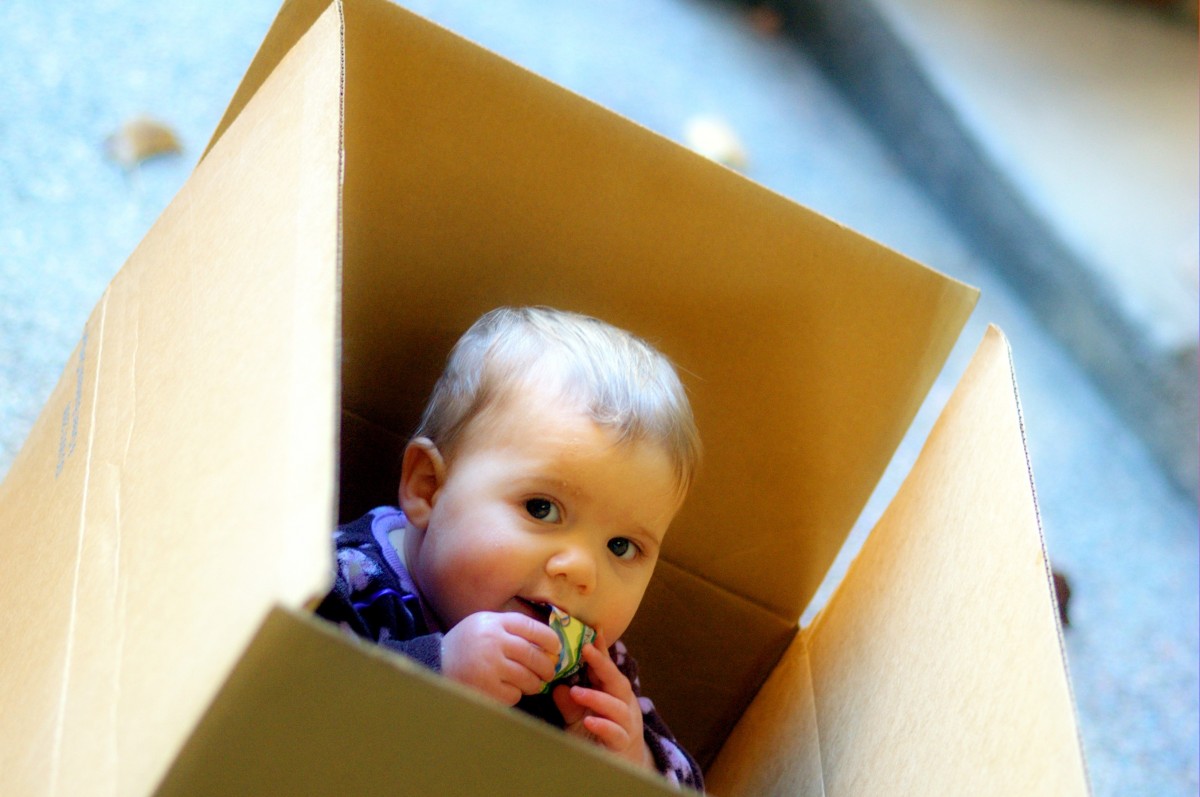
Find joy in the little things! (Photo: David Goehring / CC BY 2.0) Express your emotions!
Children laugh when they are happy. They cry when they’re sad. Children do not hide their emotions as adults do.
Studies clearly show that repressed negative emotions lead to major health problems 2)”Emotion suppression and mortality risk over a 12-year follow-up” – study conducted by Benjamin P. Chapman, Kevin Fiscella, Ichiro Kawachi, Paul Duberstein and Peter Muennig, published in Journal of Psychosomatic Research in October, 2013. There is even a trend among specialists showing that the majority of illnesses are linked to the repression of emotions (for example, decreased immunity). So do not keep them inside, express yourself! (But before you grab your boss by the collar, find out if there could be a better way to express yourself.)
Permanent curiosity
What do you think the difference is between an adult with an impressive general knowledge and a mediocre one?
It’s not about the area in which he is born, nor the means available to educate himself, but curiosity is what sets them apart. A curious adult, just like a curious child, investigates, ask questions, finds answers, and learns. Look around! Actually, curiosity is not what killed the cat 3)”Curiosity: The Fuel of Development” by Bruce Duncan Perry, M.D., Ph.D., article published in Scholastic.
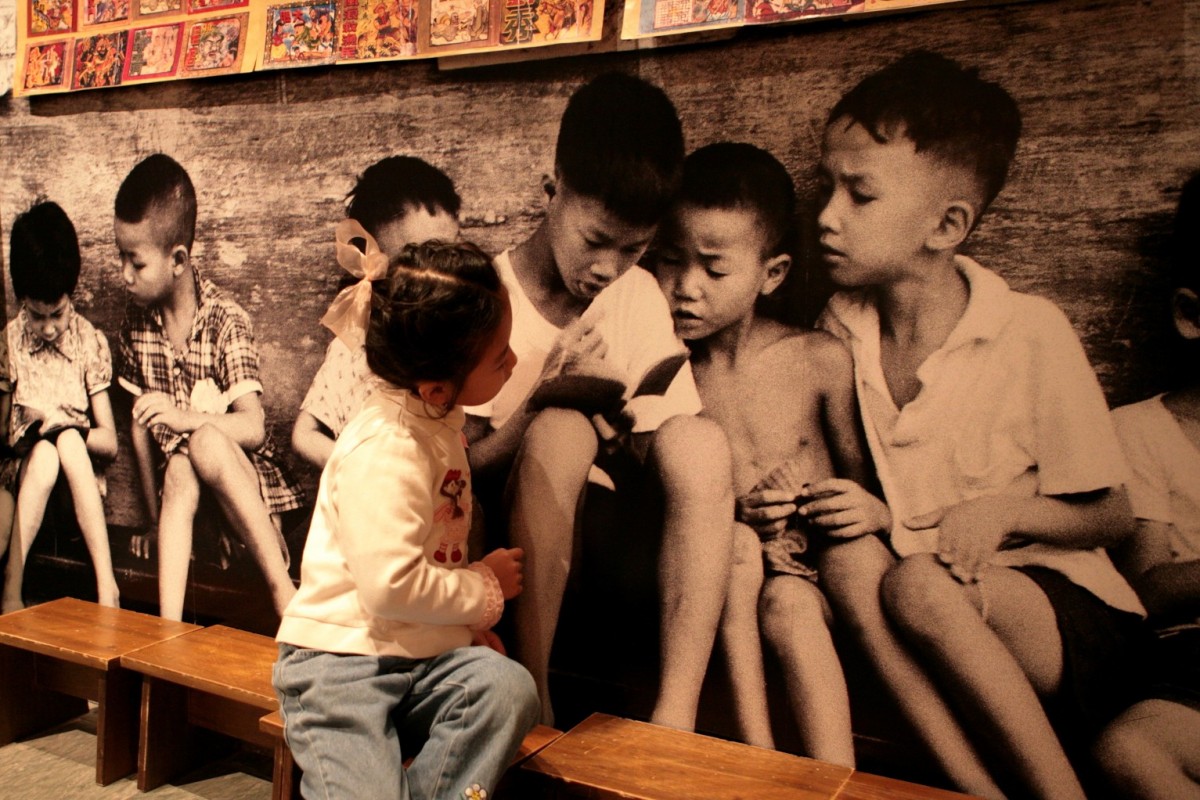
Permanent curiosity (Photo: Tommy Wong / CC BY 2.0) Self-confidence
What is the secret behind the self-confidence that children acquire? You guessed! The more independent you raise them from when they are little, the more confidence they have in their own forces. Follow the same example!
Look at yourself in the mirror and ask, “Mirror, mirror on the wall, who is …” Better let go of these fairytales! Look in the mirror and tell yourself that you can do it. Take your own vote of confidence.
Overcoming setbacks!
When a child falls off of his kick-scooter he cries a little, but then returns to play. If he wanted to draw a horse, but it doesn’t look like one, he says it’s dog and he’s done. And if he gets baffled counting, he slowly takes it from the top again.
Researchers revealed children, at an early age, are more able to overcome setbacks and negative events. Children cope with trauma outstandingly better than adults because of their high capacity of accepting the situation 4)”Do children cope better than adults with potentially traumatic stress? A 40-year follow-up of Holocaust survivors – study conducted by J.J. Sigal şi M. Weinfeld, published in Psychiatry in 2001.
Make friends!
When were you last in a public place and dared to talk to the person next to you? How about asking for his or her phone number and arranging to meet again? A long-time ago, right?
Children have no such setbacks. If they see someone (even a puppy!) that they want to play with, they simply do it. This happens everywhere: in the park, at school, on the playground, art club… Any place is good to make friends with anyone. Even if you never see him again..
Let's play!
Play is essential for children, it is their main activity. The game, however, is important at any age. As an adult, the game is a perfect source to blow off steam, to relax, and stimulate your creativity.
Do you think that you have reasons not to take part in such fun activities? Here are a few arguments! Through games you learn, stay calm, focus, have fun, you’re competitive, spend time in a pleasant way, and, more importantly, become a child again.
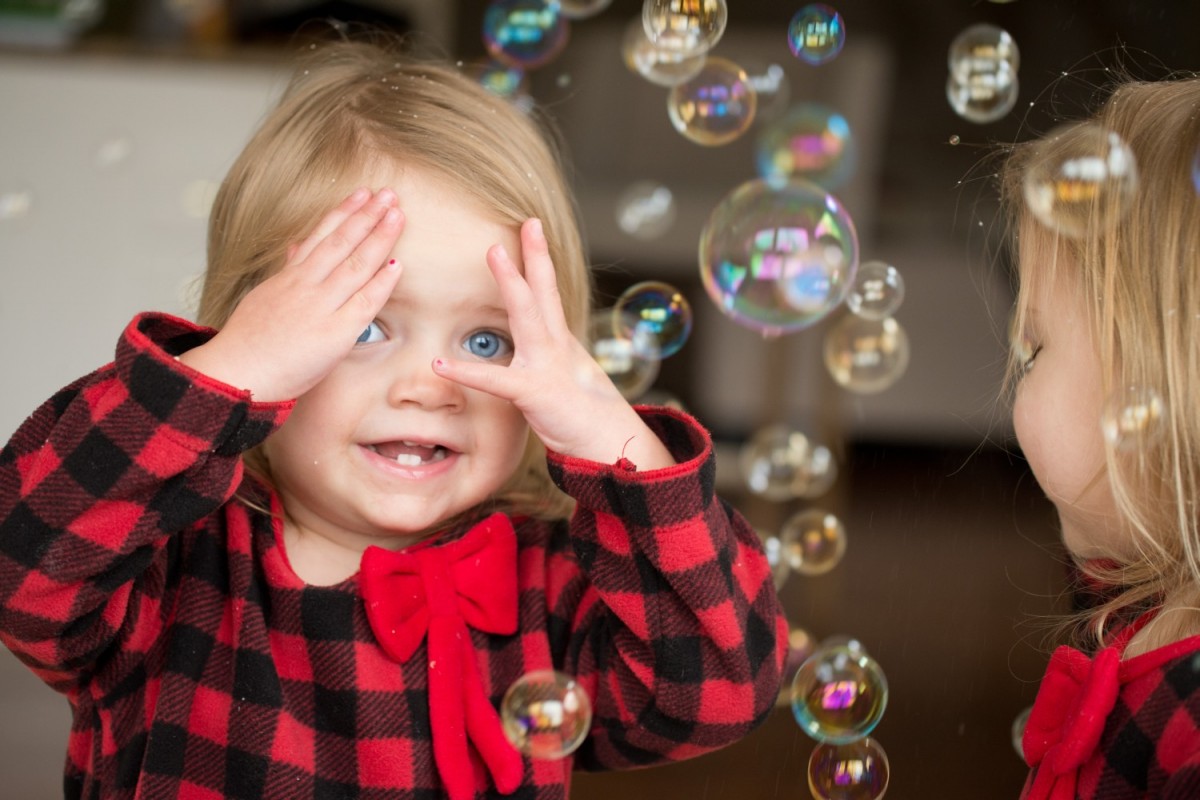
Let’s play! (Photo: Donnie Ray Jones / CC BY 2.0) Seize the moment!
Children do not have regrets for what happened in the past and they surely don’t even worry about the future. Their only interest is what they are doing now.
Adults spend half their time with thoughts beyond the present moment. But life is now, here. Being present every moment is one way to a happier life 5)”How to enjoy living in the present moment” by Ed Halliwell, article published in The Guardian on January 28, 2012.
One thing has no one-time
Give a child something and he will prove what can be done with it. The manufacturer should pay him for consulting services!
If you learn to apply it as a general principle, you would have a few surprises. The solution to a problem can hide among things that do not seem to have any connection.
Do not do anything in half measure!
When a baby cries, even the neighbors know. When he laughs, the whole street resounds. If caught in the middle of a game, he doesn’t even need food. He gives everything his all.
Doing things by halves means being mediocre. Without even a real chance to do your best.

Do not do anything in half-measure! (Photo: Christian Benseler / CC BY 2.0) Unconditional love
Our idea of love is complicated. No wonder it’s the focus of so many novels, poetry, films, etc. But in fact, love is simple and can be given unconditionally!
As a child, your love has no boundaries (age, race, sex). Remember that you loved Mowgli (without considering his social status) and Shrek (without considering that he didn’t look that well), as well as Wile E. Coyote (although he never had the best intentions).
Delightful spontaneity
Children do not calculate their “movements”. They do what they want and say exactly what comes to their minds. And that’s part of their charm.
Spontaneity is a paradoxical quality. On one hand, it makes you remarkable. On the other hand, it can get you in trouble. It’s an art to harness, especially without abusing it. But first of all, you have to remember how to do so. And for this, you better observe children.

Delightful spontaneity (Photo: Katie Thomas / CC BY 2.0) Friendship without labels
How many friends do you have? 10? 20? 50? 500 on Facebook? Less? Probably yes. The rest of them you call acquaintances.
I bet that as a child you didn’t look at it the same way. You knew that a true friend couldn’t be bought. (But can he be sold?!)
Show your affection!
When a child is fond of you, he will certainly show it. Regardless of his age.
Adults are supposedly more restrained. Cut the crap! Show your loved ones that you care about them, even if you believe that they know it. Embrace them whenever you can. Not only will that make them happier, but it’s also beneficial to your health 6)”Fun Facts About Hugging” – article by Dr. Joseph Mercola.
Believe in miracles!
What are those things you hear about over and over again each winter holiday? That you no longer believe in Santa Claus. Nor in the Easter Bunny during Easter.
However, children are fascinated by the power of believing that miracles exist. They are also Earth’s wonders!
Braveheart
Courage separates you from others. Do you think Spartacus, William Wallace, and Robin Hood carefully analyzed the consequences of their actions when they dared to rebel against what they called injustice?
Courage is what makes you stronger than your kin, more fearless than them. That’s what you were thinking of at the age when you first found out about these heroes. Even if now you are afraid, do not forget a single moment what you want to be. And face your fears, step by step!
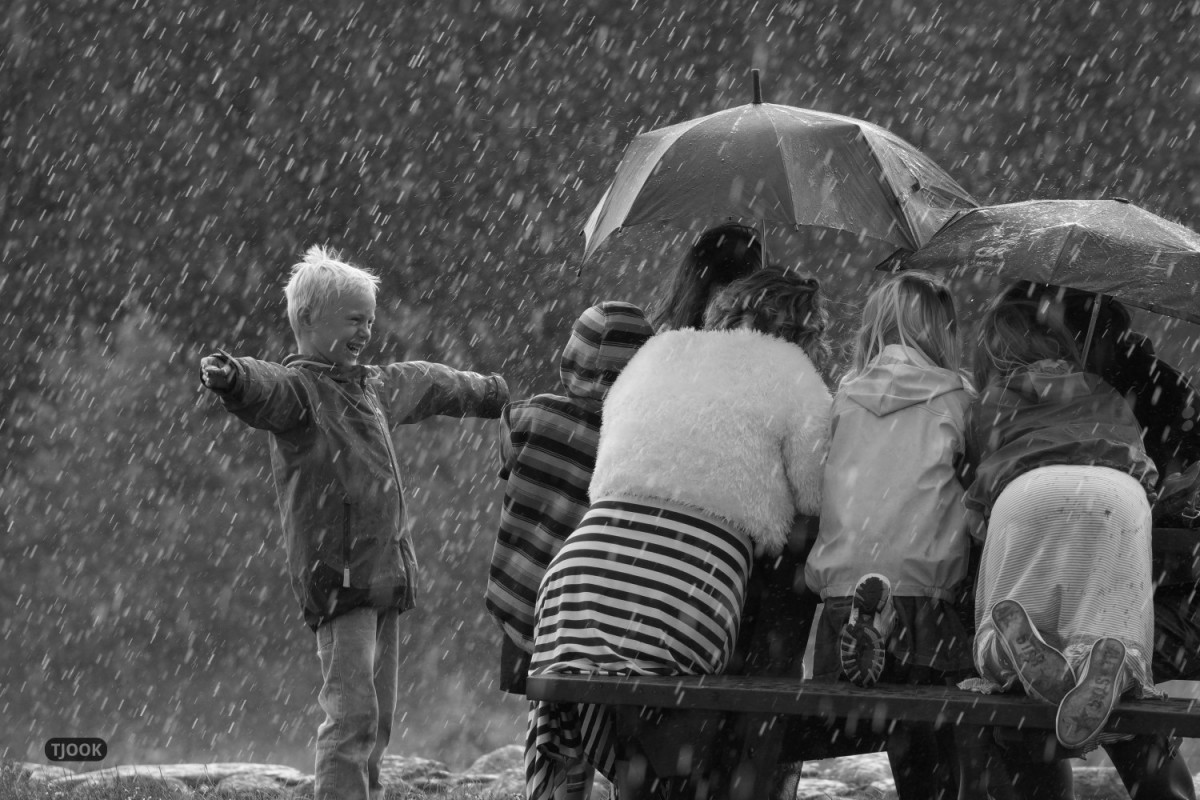
Braveheart (Photo: Tjook / CC BY-ND 2.0) Complete forgiveness
Forgiveness is a choice, not a feeling. Therefore, it is difficult to forgive others. But once you learn to forgive and leave troubles behind, you’re one step closer to pure peace of mind. You are not weak, but strong when you say, “I forgive you.” And you can learn that from children. They really forgive!
It’s simple! Try it when someone makes a mistake, do not react immediately. Close your eyes and let the anger pass for a few seconds. (This would be good advice for your boss too, especially when you’re late.)

Complete forgiveness (Photo: sa bo / CC BY-ND 2.0) Lifelong learning
Babies learn to know the sensory world. From 2 to 7 years of age, children listen to the views of others, ask questions, and gather concepts. After the age of 12, most children have their own opinions about the world, based on what they learn every day 7)”How children learn” by Sue Clarke, article published by British Council. Learning starts from the first contact with the surrounding environment and continues throughout your entire life. The more you learn, the more you realize that you have so many more things to learn. But that also depends on what you choose to learn. If you become an expert at drinking beers in one large gulp, that’s not going to help you much.
Maybe you won’t believe it, but your child can learn new things faster than you. For example, a foreign language – even if they don’t understand grammar all that well 8)”Are children really better at foreign language learning?” by Anne Merritt, article published in The Telegraph on September 18, 2013. Of course, children have fresh minds and assimilate new information more easily, especially when they are easy to understand. But beyond that, isn’t there something else? Children are always open to learn, to find out, to know. You can to at any age. It’s just a matter of attitude.

Lifelong learning (Photo: Philippe Put / CC BY 2.0) Creativity without limits
Picasso really believed that “every child is an artist.” And you don’t have to be Picasso to realize this. It is enough to look at new ideas that are passing through the mind of a child and the way they expresses their imagination. How many times have you said that there would have been no way in which such an idea would have passed through your mind?
If you are envious of children for their creativity, remember: that is where you started! You just have to find something from the mindset of a child. For that, you need to throw away a little of what you think it means to be an adult. The easiest way is through games. You’re going to tell me that you’ll feel ridiculous playing with dolls or with colored crayons. But children don’t need such things to be creative! They play and are creative with anything. So you can play when you eat or while working in the garage. The goal is to regain that state of mind. And creativity will appear.
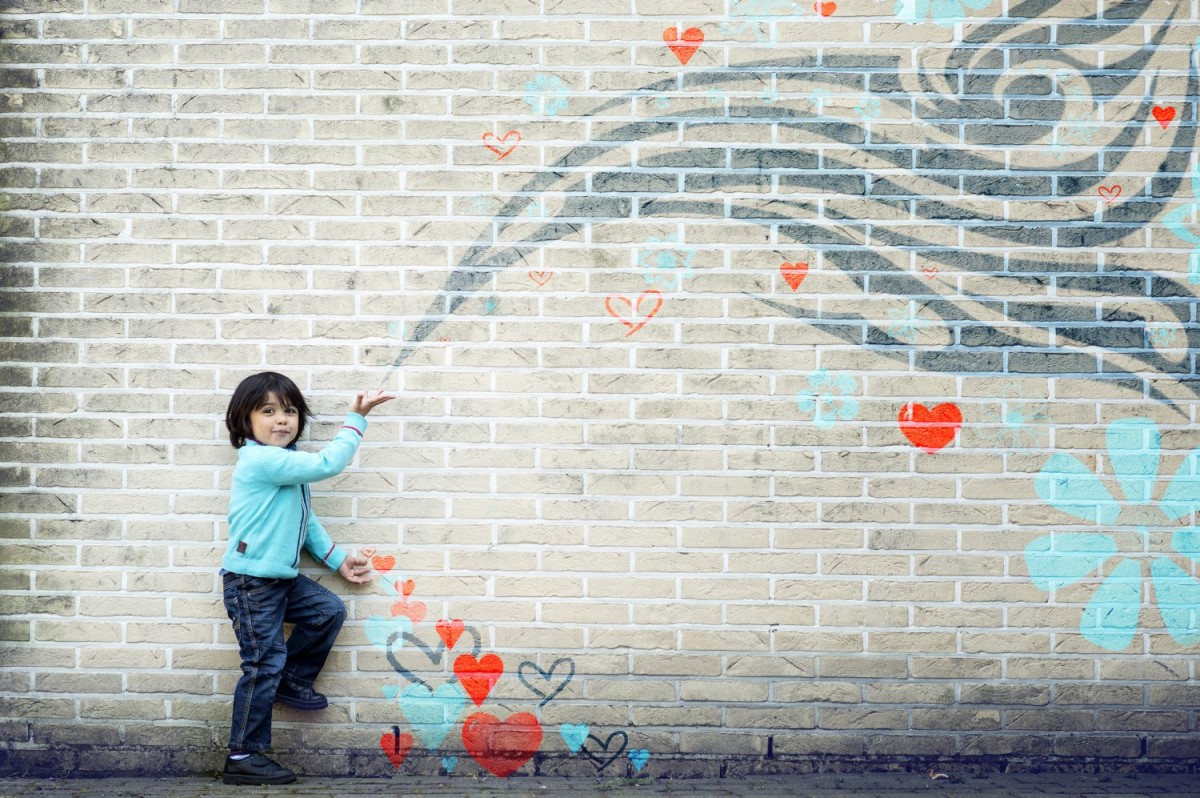
Creativity without limits (Photo: Philippe Put / CC BY 2.0) Vivid imagination
Children have more imagination – this is not some novelty. In fact, they spend more time mentally in imagination than in reality. So what? It’s not just a game. Without imagination, you cannot create anything new. Imagination helps you find unexpected solutions. Animates you to your goal. It shapes your inner self. Maybe even makes the seemingly impossible, possible!
I know you have a lot on your plate. You’ll tell me that you barely have time for reality. But if you watch the way in which a child sees something, you’ll see it’s not that hard. Just make a habit of imagining. A habit that will reward you.
Attention to detail!
Small details make the difference between reality as you see it and the one that a 7-year-old child sees. If you think the sun setting is wonderful, can you imagine how he will see it? He will see all possible colors, he will watch as the sun disappears and imagine where it goes, and how the world will change with darkness.
Observing the details makes it interesting. The details can hide a whole world. And whoever manages to see this, is different from others.
Why?
Why is the sky blue? Why is winter snowy? Why do I have a belly button? At its peak, a 4-year old ask hundreds of questions a day 9)”Mothers asked nearly 300 questions a day, study finds” – article published in The Telegraph on March 28, 2013. When the age of “why” goes, we often forget to ask ourselves questions.
What curiosities bother you and what do you do to find the answers? I often find myself wondering why Mrs. Smith looks so good, though she just gave birth to three children. But seriously, ask yourself more often “Why?” It is the most powerful question, and the answer you give yourself can change your life.

Why? (Photo: Keoni Cabral / CC BY 2.0) Smile!
Do you use smile therapy? Research has shown that your smile transmits to the brain the fact that you’re happy. And children do this most often.
There are two types of smiles. The smile which appears when you are in a situation that you enjoy and smiles that you create willingly. Both significantly improve your mood. Smile more often! Even if you only do it to play tricks on your mind.
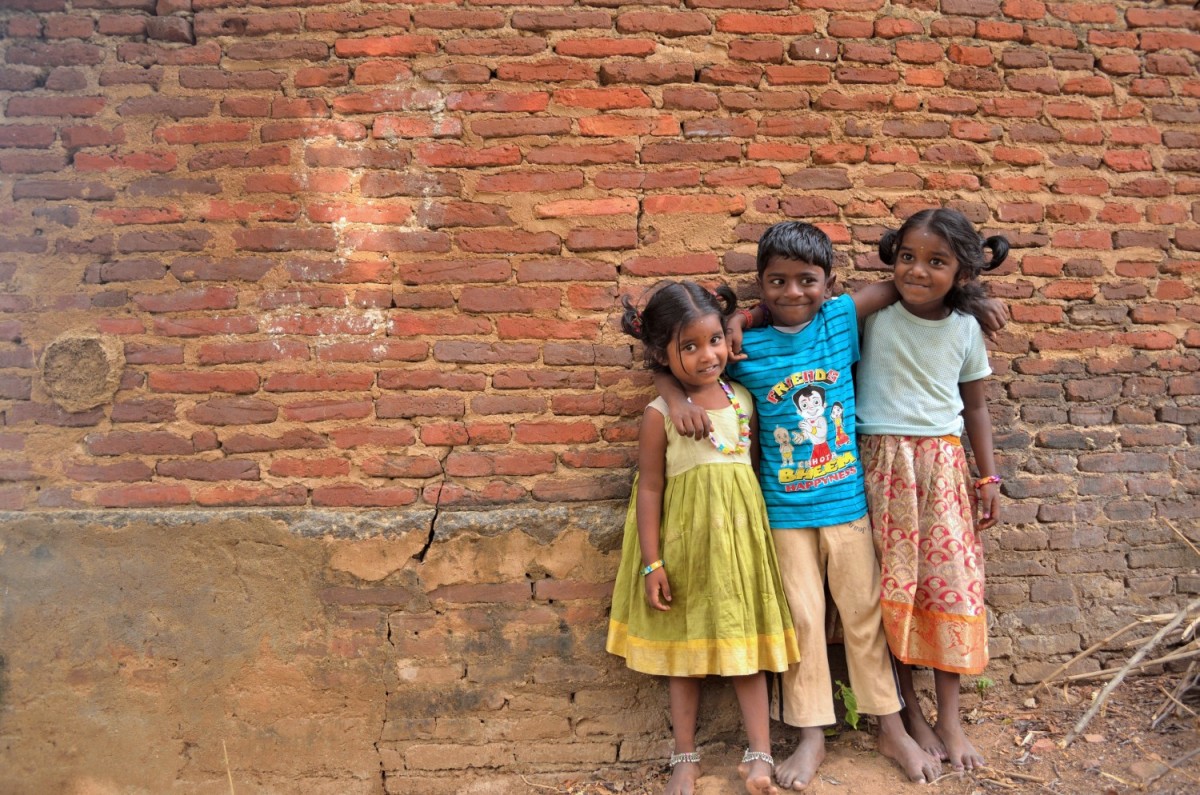
Smile! (Photo: Niranjan Ramesh / CC BY 2.0) Keep laughing!
Learn from the little ones how to laugh. They do it more often than adults 10)”You’re Not Laughing Enough, and That’s No Joke” by Pamela Gerloff, article published by Psychology Today on June 21, 2011. Maybe sometimes it seems like they’re laughing at just about anything, but that’s the trick!
Laughter is healthy. Doctors say that laughter has benefits not only for your physical health (decreases stress, prevents cardiovascular disease, reduces pain, and relaxes the muscles), but also mentally (reduces anxiety, phobias, stimulates optimism and wellbeing). It is the most handy antidote for pain and stress 11)”How Often Do You Laugh A Day?” by Sue Heldenbrand, article published by SelfGrowth. So do not miss the opportunity to laugh from ear to ear. Even if you don’t have all of your teeth!

Keep laughing! (Photo: Donnie Ray Jones / CC BY 2.0) Cry!
For most people, crying is a solution to relieve tension. And children know this instinctively.
You should allow yourself to cry, especially in situations when stress overwhelms you. Studies done by Dr. William H. Frey II at St Paul-Ramsey Medical Center have shown that, contrary to tears caused by external factors (when peeling onions, for example), those caused by stress contain cortisol (stress hormone), thus providing a way to get rid yourself of it 12) “Biological Role of Emotional Tears Emerges through Recent Studies” by Jane E. Brody, article published in New York Times on 31 August 1982. Perhaps that’s why even boys cry sometime.

Cry! (Photo: Heather Williams / CC BY-ND 2.0) Punctual refusal
You take your kid to the mall and he asks: “Buy me this toy?” You say “No.” He asks about another one. Clearly, you say: “No!” Another follows and another… Once you get tired of keeping it up with “No! No! No!”, you try to draw the line: “Today, we’re not buying any toys.” When you begin to feel peaceful again, you hear: “But how about a ball?” (Is the ball a toy?!) “No.” Maybe a lollipop? Duct tape? A screwdriver?…
Children do not generalize refusal. So why you do it?
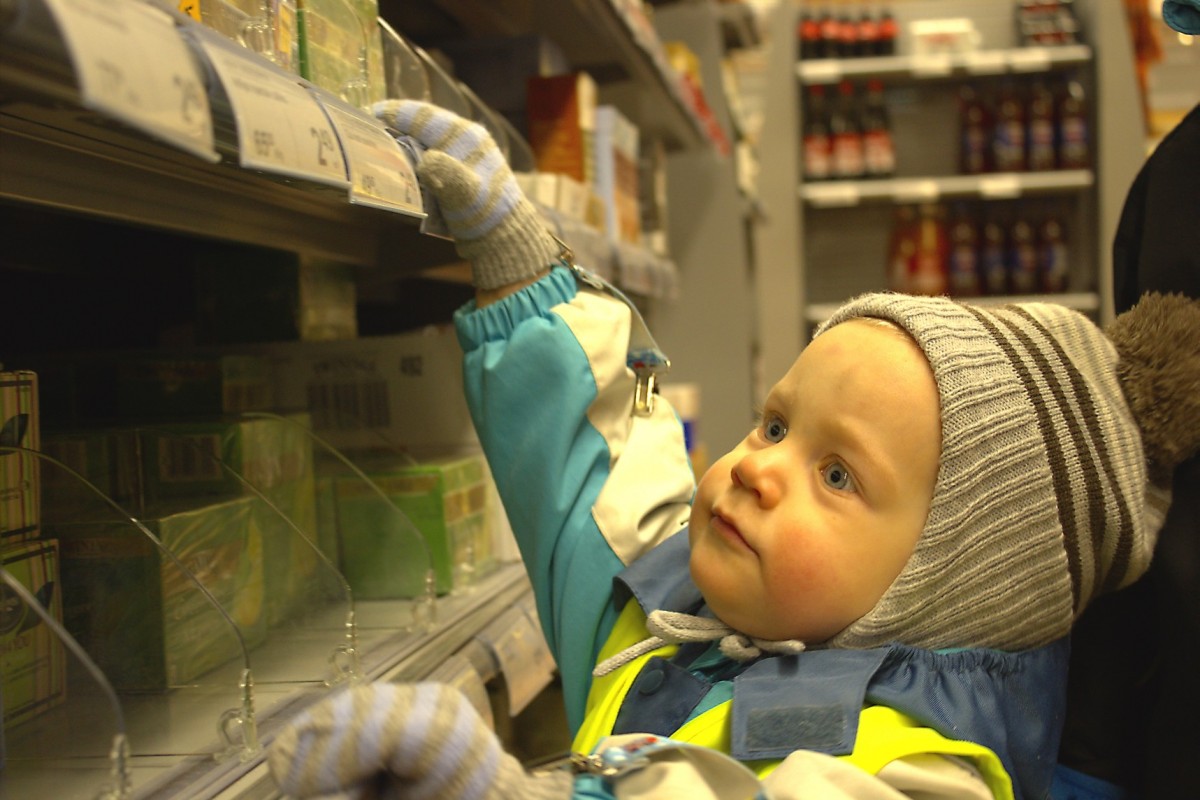
Punctual refusal (Photo: Jaro Larnos / CC BY 2.0) Do not resist change!
Learn not to oppose change or, in other words, learn to adapt quickly. Life itself is changing.
If you should move, for example, from one city to another, it could take a few weeks, at least, to adapt to a new lifestyle. Whence a child would simply end one chapter and start over again!

Do not resist change! (Photo: David Nagy / CC BY 2.0) Daydreaming
No need to tell a child that anything is possible, but rather an adult should be taught that – because when you reach adulthood, you become a doubting Thomas and want proof of everything that happens around you. Children don’t need convincing evidence. For children the most important thing is whether or not what they found can make them daydreaming.
They can dream of becoming doctors, pilots, or even astronauts. They think that a simple stick could instantly become the sword of Zorro. They think that if they wish hard enough, one day, magically, they’ll wake up with a horse at their door (at least a “horse” with two wheels). It’s great to dream! But even more wonderful is that sometimes an amazing dream somehow can become reality.
True joy
How can you bring joy to a child? You think it’s easy, right? A new toy and some ice cream? Maybe a walk in the park or 30 minutes of cartoons? That may be so, but these feelings only bring them passing joy.
Children, like adults, enjoy life when they are among a happy family, when treated with confidence, and their merits are recognized 13)”Children and happiness” by Dr. Michelle De Haan, article published by OpenLearn on January 10, 2006. Such joys increase in your heart and your whole life. No matter how old you are.

True joy (Photo: David Amsler / CC BY 2.0) Trust promises!
Children are confident and take all the promises made to them seriously (except those made by them, that’s another story).
For children, when you give them “your word” that simply means a promise assumed that must be met. And they will not let you off easy.
Straight forward!
How many times have you felt that you’re not the one to beat around the bush? That you say things exactly how they come to mind and do not hesitate when you have something to say? As a child, you speak your mind… or do you? I remember a funny story about what happened once to my father. Being a teacher and working with children, one morning a boy told him bluntly: “Sir, your tie is crooked.” When he told me, I smiled. I could not imagine why the adults around him never said a word about something so obvious. (And … why Dad never wears a bow tie?!)
Honesty is a moral quality that you can easily learn from children. Beyond honesty, however, children show you how to be transparent and speak about things exactly as they are. Bluntly! Without nuances of meaning!
The value of something is not measured by money
A child doesn’t wonder what the cost of what he is receiving was. An expensive doll can easily get thrown into the back of the drawer, while a worthless figure can become indispensable. Stylish clothes are not a drawback for great entertainment in puddles.
The true value of an object can be found in how long it stays useful or pleasant. The price only shows its cost.
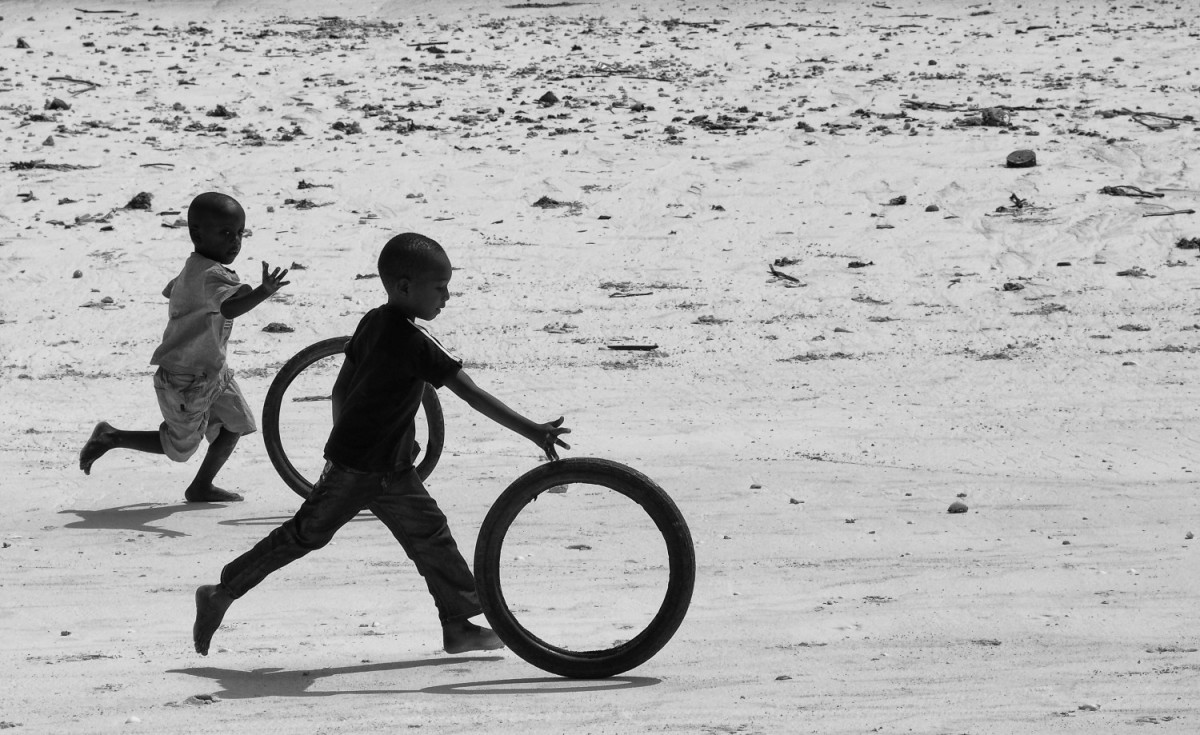
The value of something is not measured by money (Photo: Georgie Pauwels / CC BY 2.0) Scars make you proud
One child proudly shows his bruises. With one scar, he is already “captain”. With one arm in a cast, they cannot wait to present it to their friends and get it autographed, and are not ashamed to show it off.
Nobody wants “scars”. But if you happen to get them, it’s proof that you lived life to the fullest. You did not exist as a vegetable. You did what you felt – and if you didn’t always come out on top, what?!
Do not continue to be angry!
When two children are fighting, the anger only lasts until the next day. Despite the fact that they swore they would never talk to each other again.
What can we learn from this? “Never” really means until midnight. At that moment grudges somehow reset. Unless you’re a stubborn adult.

Do not continue to be angry! (Photo: Rob / CC BY-ND 2.0) Sleep like a baby!
A sound sleep will energize you and will also prevent many diseases. Therefore, it is essential to leave your worries at the bedroom door when you want to have a relaxing sleep.
Take toddlers, for example! Sure, they wake up crying, but that’s only because they have problems which they have yet to learn to solve on their own. But when they sleep, their sleep is carefree, restful. When waking, a wonderful day awaits them!

Sleep like a baby! (Photo: Joe Sullivan / CC BY 2.0)
A child can learn a lot from you. But true education is a two way street: the teacher has something to learn from his students.
When you get a chance, closely follow the behavior of a child. You might rediscover a helpful attitude. You’ve already done it sometime in your past, how hard can it be?!
All about the development of vision in children, with fascinating facts about eyes.
The most amazing facts about newborn's anatomy - incredibly different from what they will become
References
| ↑1 | ”Why ‘The Secret’ & Law Of Attraction Doesn’t Work For Most & What Does” by Michael Mackintosh, article published in Owning Pink on December 29, 2012 |
|---|---|
| ↑2 | ”Emotion suppression and mortality risk over a 12-year follow-up” – study conducted by Benjamin P. Chapman, Kevin Fiscella, Ichiro Kawachi, Paul Duberstein and Peter Muennig, published in Journal of Psychosomatic Research in October, 2013 |
| ↑3 | ”Curiosity: The Fuel of Development” by Bruce Duncan Perry, M.D., Ph.D., article published in Scholastic |
| ↑4 | ”Do children cope better than adults with potentially traumatic stress? A 40-year follow-up of Holocaust survivors – study conducted by J.J. Sigal şi M. Weinfeld, published in Psychiatry in 2001 |
| ↑5 | ”How to enjoy living in the present moment” by Ed Halliwell, article published in The Guardian on January 28, 2012 |
| ↑6 | ”Fun Facts About Hugging” – article by Dr. Joseph Mercola |
| ↑7 | ”How children learn” by Sue Clarke, article published by British Council |
| ↑8 | ”Are children really better at foreign language learning?” by Anne Merritt, article published in The Telegraph on September 18, 2013 |
| ↑9 | ”Mothers asked nearly 300 questions a day, study finds” – article published in The Telegraph on March 28, 2013 |
| ↑10 | ”You’re Not Laughing Enough, and That’s No Joke” by Pamela Gerloff, article published by Psychology Today on June 21, 2011 |
| ↑11 | ”How Often Do You Laugh A Day?” by Sue Heldenbrand, article published by SelfGrowth |
| ↑12 | “Biological Role of Emotional Tears Emerges through Recent Studies” by Jane E. Brody, article published in New York Times on 31 August 1982 |
| ↑13 | ”Children and happiness” by Dr. Michelle De Haan, article published by OpenLearn on January 10, 2006 |
Did you like it? Now it’s your turn. You’ll make us very happy if you share this article with your friends:
And don’t forget to let us know what you think – we are really interested in your thoughts on this!



